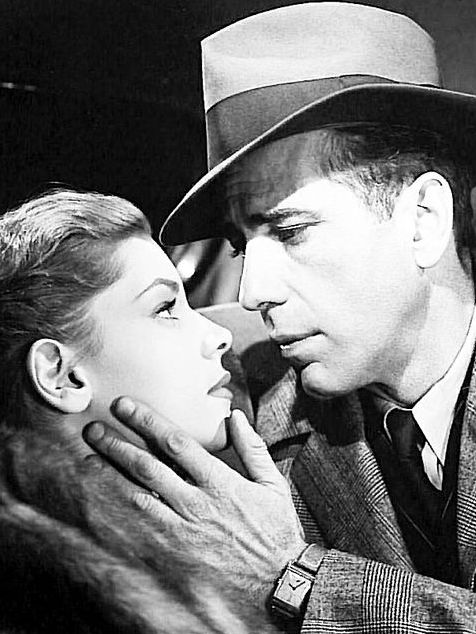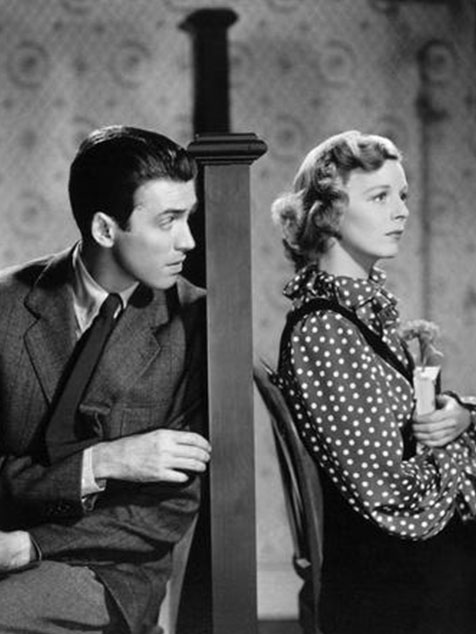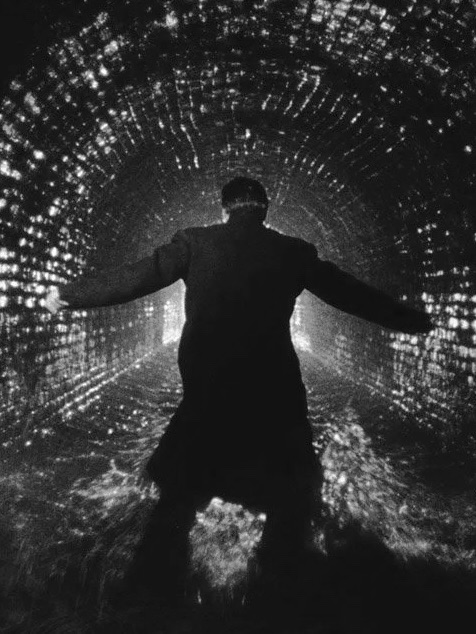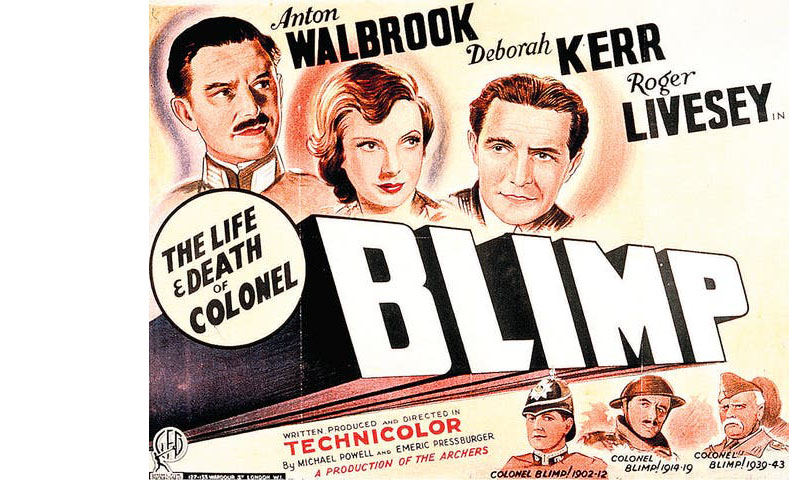
Time Waits For No One
About two-thirds of the way through ‘The Life and Death of Colonel Blimp‘ the titular character, actually named Clive, tells his German friend Theo, that he’s spent his life trying to find a girl like Edith, the first woman he ever loved (played by Deborah Kerr). It’s not that Edith disappeared, or went missing, in fact she married and grew old with Theo and died some years before this conversation takes place. But since Clive only realised he was in love with her after it was too late, he spends his remaining years trying to find her again. He manages, to a degree, and married a nurse named Barbara, (also played by Deborah Kerr) though she too dies young, & we get the sense that, though he loved her, he could never quite recapture that which he felt for Edith. By the end of the film, Clive finds some semblance of peace in the company of his young driver, Angela (the third and final role played by Deborah Kerr). In the opinion of this three-time reviewer, that is a story worthy of its own movie, but in the case ‘Blimp‘ it is possibly the least of four major subplots.
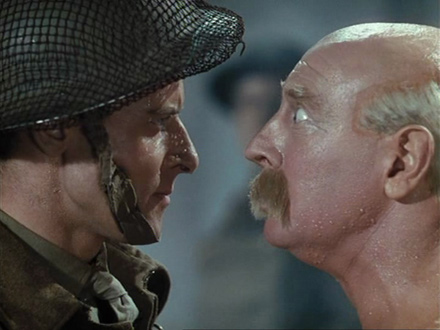
We first meet General Clive Candy in 1942 as one of several elderly gentlemen spending their morning at the Turkish baths. A training exercise by the younger members of the Home Guard sees Clive and his cronies ‘captured’ in the middle of their leisurely Sunday steam. The ensuing brawl between Clive and the young lieutenant over the nature of this exercise and the ‘impudence’ of the younger officer leads to an indignant Clive exclaiming, “How do you know what sort of man I was when I was as young as you, forty years ago”. It was this idea, that the young never know what it means to be old, that birthed the film – and is the catalyst for the flashback to forty years prior, with the rest of the film playing catch up to that fateful morning at the Turkish baths. After a dolly over the pool we meet a smooth-lipped and hair-headed Clive in 1902, four decades younger, fresh from the Boer War and looking for some trouble.
Against the advice of his seniors, he flies to Berlin to set the record straight over a German officer whose been spreading anti-British propaganda, and in the process meets Edith. Following his encounter with the German in question, he winds up insulting the entire German army, the response to which is, naturally, that a duel be fought between Clive and a designated German officer, to be drawn at random from a lot. From here we see Clive meet, befriend, and duel Theo (the chosen German); scar, recuperate, fall in love and not know it till she’s married Theo, fight in another war, marry and become widowed, grow older and balder, and fall more and more out of step with the world around him. The Clive we encounter from the jump through the eyes of the young army officer, is a blustering, old-fashioned, walrus-moustached fogey, who is clearly wrong in his unwavering commitment to honour at a time of war. Yet, over the course of the 168 minute runtime, we come very much to love him, and to empathise with him almost to the point of agreement. At the tail end of the film, Theo tells Clive that in the face of such pure evil (Nazism), his sentimentality is of no use, that his refusal to accept that the old rules of warfare no longer apply will cost him gravely – whether he likes it or not playing fair against foul is of no use if it means foul comes out on top. This is, of course, undoubtedly true, and we scarcely need the benefit of hindsight to know this. But by this point in the movie we have seen the world through Clive’s eyes, and as he grieves the loss of a world he once knew, one governed (largely) by a universal, code of conduct that has now changed without him, and without letting him in on the secret, we grieve with him.
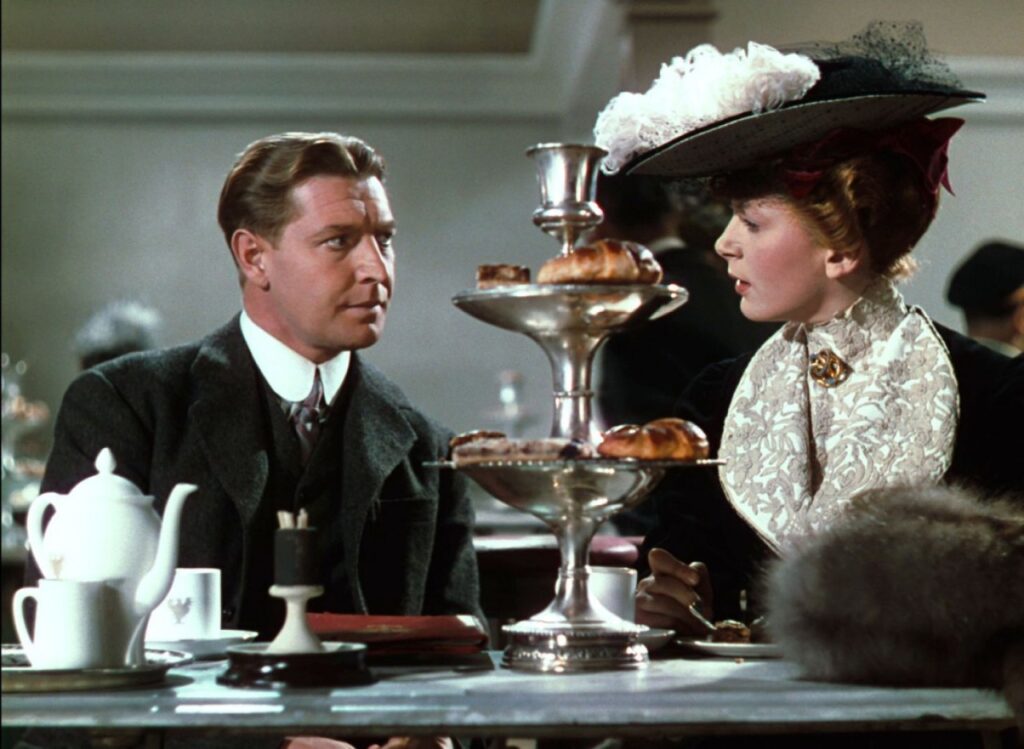
Similarly, when he falls in love with Barbara because she reminds him of Edith, we too fall in love with her, and for the very same reason. He is a man whose actions we’d probably be right to judge, and often to oppose, but he is so honest, and vulnerable in his beliefs, that to do so would be unthinkable. Whether you believe that such a world ever really existed is besides the point. So too is the question you might ask yourself, “What do I care about an old man who believes in sportsmanship and honour in the midst of the Second World War?” This feeling is not limited to Clive, or to the war. The same sentiment can be applied to anyone who grows old trying to keep one hand firmly in the pocket of the past. We will likely all feel left behind and forgotten, one day, by a world that didn’t wait for us, a world that has changed far beyond our recognition. Certainly we all have memories, moments in time that we’d rather go back to than continue to move further away from, and in that way I think ‘Blimp‘ touches on something so universal that it transcends its context. You might well accuse this movie of never quite breaking an egg to make an omelette, and that wouldn’t be a grossly unfair accusation. Indeed, contemporary critics questioned what the film was actually about. The wars are glossed over, as is Clive’s marriage and his becoming a widow, and Theo is missing from the middle of the movie only to resurface toward the final third. But looking for one single theme, be it that of lost love, of friendship, or of war, would be to diminish its daring scope; it would mean missing the universality of its tale of the human experience. That the film doesn’t dwell on its more poignant moments, and what that say about growing and more crucially, letting go, is what makes ‘The Life and Death of Colonel Blimp‘ the feast that it is.
Even though Powell & Pressburger, the writer-directer duo (known as ‘The Archers’) responsible for ‘Blimp‘ are, for my money, the greatest filmmakers that ever worked in Britain, I had long put off watching it. Ostensibly, its a movie about war, and I don’t much care for war movies, there’s no real romantic story at the heart of it and frankly I would rather watch the blossoming of a romance on screen than nearly anything else. Being set over forty years of a man’s life gives it a wide, sprawling, scope, and wide sprawling scopes are typically not my cup of tea. But I’d sooner liken this movie to a French boulangerie than I would to a war movie, or an epic. And what could be more romantic that a man who spends his life trying again to find the first woman he ever loved? This is not a sad movie, though there is plenty to be sad about, simply because that is not the intention. Characteristic of the era, and its wartime release date, ‘Blimp‘ ends with a warm smile as Clive learns to accept that things are the way they are, and that he’s better of accepting it than going on with the eternal struggle trying to keep things the way they used to be. With that being said, it is those moments laced with a gentle melancholy that remained with me after the roll of the credits, that lingered in my mind for a considerable time afterward. In a life full of major events, ‘The Life and Death of Colonel Blimp‘ is more about the life lived in-between and the way in which, like the inexorable clock of life, time must go on, and indeed, it waits for no one.
You may also like
THE BIG SLEEP: PROGRAMME NOTE
“Nice state of affairs when a man has to indulge his vices by proxy.” Audiences attendi
What A Little Love Can Do
Tellus integer feugiat scelerisque varius. Sit amet volutpat consequat mauris nunc congue nisi. At u
The Greatest Shot in Film
Preface What is the greatest shot in film? Aside from being a hard question with an ea


